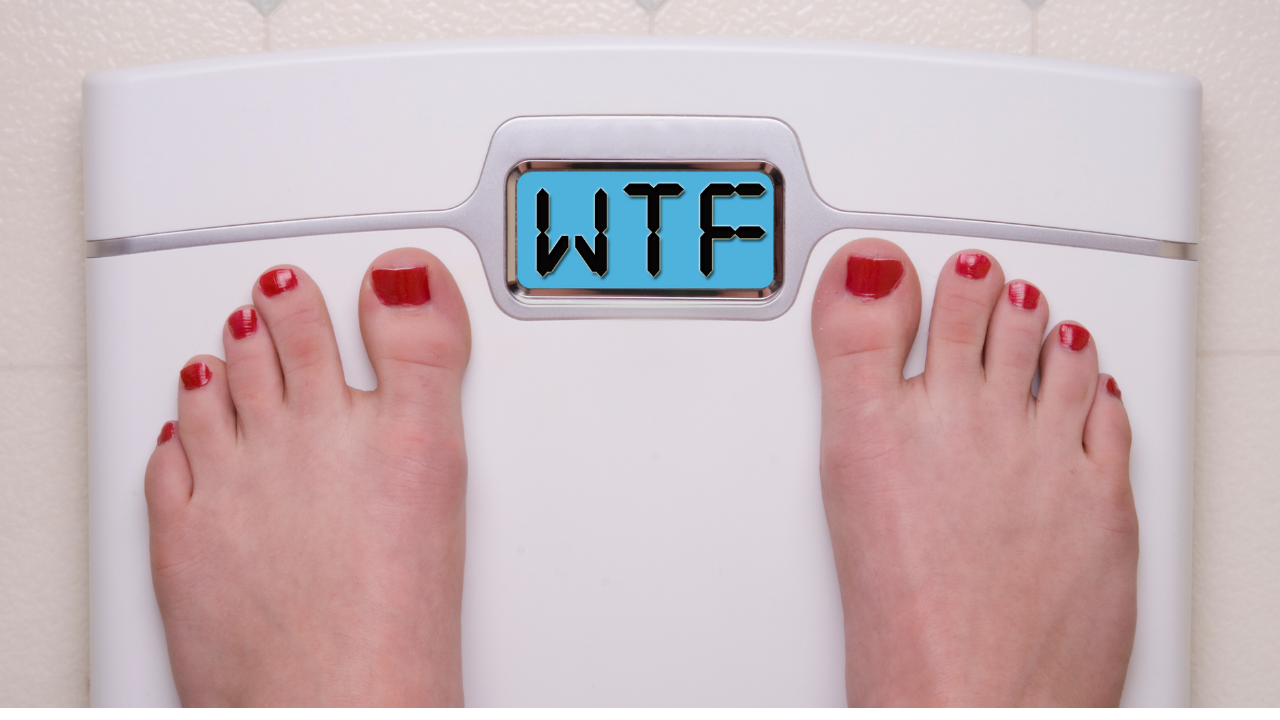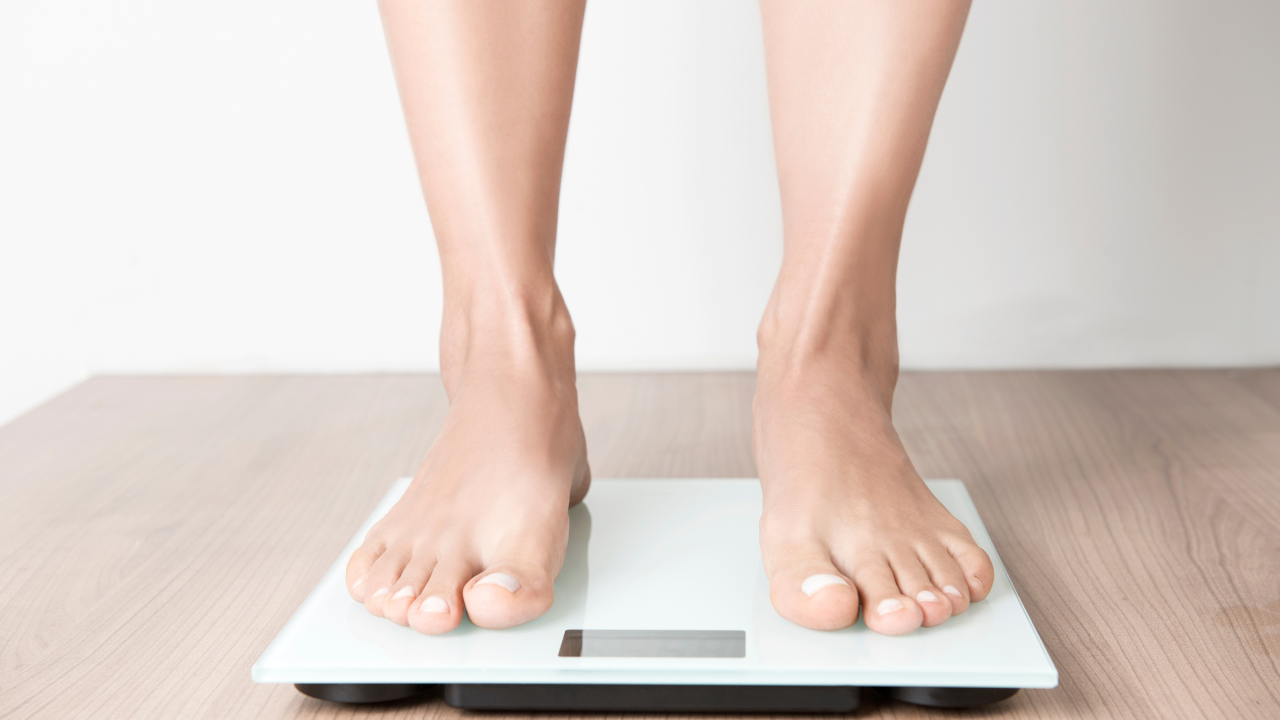
This Is Why You Gain Weight During Menopause
Oct 28, 2022You’re eating the same as you always have, yet you’re gaining weight, especially around your abdomen. What gives?
If you’re in your 40s or 50s, then you’re in peri-menopause or full-blown menopause. And yes, that’s us, too!
We experience hormonal changes and common symptoms like anxiety, hot flashes, brain fog, and weight gain.
Specifically, our levels of estrogen decline, which changes how our bodies store and distribute fat. And they decide to store this fat in the abdomen.

Also, hot flashes and mood swings can interfere with a good night’s sleep. When we’re exhausted, our energy levels are low, and it’s extra hard to find the motivation to work out. We also tend to be hungrier and consume more food throughout the day. Less physical activity and higher caloric intake contribute to weight gain.
Before we can blame menopause for all of our problems, other lifestyle factors can contribute to weight gain around this time in our lives.
As we age, we naturally lose lean muscle mass. With a decreased muscle mass, our metabolism, or the rate at which we burn calories, slows. We don’t need to consume as many calories to keep the same weight. So, if we’re eating the same as we always have, this is probably too many calories and our bodies store the extra calories as fat.

We may also be exercising less regularly than 5 years ago. Combine this with our diet, and weight gain is inevitable.
We have good news: you can prevent or reverse menopausal weight gain. And we’re going to tell you how.
FIVE WAYS TO PREVENT MENOPAUSE WEIGHT GAIN
Increase your physical activity
Exercising can increase your muscle mass, which boosts your metabolism. You burn more calories and can more easily control your weight.
Aim for strength training activities at least three times a week. Strength training can also increase bone strength and help prevent postmenopausal osteoporosis. Lifting weights creates more metabolically active muscle mass, which is key to preventing weight gain and crucial to promoting fat loss. And when you lift, don’t just use the 3-pound dumbbells. Grab something a bit heavier that will challenge your muscles while keeping good form.
In addition to strength training, shoot for your 10,000 steps per day or any activity that you enjoy that gets you up and moving every day. We love hiking and walking (when the weather is good), but you do you!
Switch up your type of workouts weekly to keep up your motivation. We have 11 fun ways you can sneak in exercise throughout the day so you never get bored of the same workout.
Eat nutrient-dense meals
Processed foods are filled with artificial ingredients, seed oils, sugar, and refined carbohydrates. Stick to whole foods, including fruits, vegetables, raw nuts and seeds, fermented dairy, and high quality protein (eggs, fish, red meat). By eating foods with more fiber and protein, you will stay full longer and not be tempted to reach for that midday bag of potato chips.
To up the nutritional value and keep your calorie consumption in check, there are some easy healthier food swaps: replace butter with ghee or olive oil; replace white grains with whole grains; replace white pasta with brown rice pasta, lentil pasta, zoodles, or spaghetti squash; replace a brownie with a piece of dark chocolate. Also, pre-portion out snacks to help you stick to one serving size.
It’s also important to pay attention to your drinks. Say goodbye to sweetened drinks like soda, juice, energy drinks, and sweetened coffee and say hello to water, soda water, and unsweetened green tea.
We don’t recommend severely restricting your calorie intake or counting calories. If you increase your protein intake at every meal (we recommend 1 gram of protein per pound of body weight), we guarantee you will be less hungry during the day and have fewer cravings for junk food. Listen to your body’s cues and make healthier food swaps when you can.
Limit alcohol intake
Alcoholic beverages are empty calories, offering no nutritional value. Your body views alcohol as a toxin and prioritizes its elimination from your body. If you were to eat a meal while having a beer, your body would first get rid of the beer and you wouldn’t uptake as many nutrients. Essentially, your metabolism is being shut down.
Alcohol itself contains a lot of calories and often a lot of sugar. Also, alcohol decreases your inhibitions and increases your hunger, making it easier for you to reach for carbohydrate-loaded food, like french fries, chips, pizza, pretzels, and pasta.
Instead of sipping on a cocktail, drink carbonated water with lime, coconut water, berries in water, or kombucha.
Get a good night’s rest
Check out our article 11 SUCCESSFUL SLEEP TIPS DURING MENOPAUSE. These are full proof!
Reduce stress
Stress can make you overeat. It can make you want to reach for that second glass of wine. It can mess with your ability to sleep well. These are all things we know contribute to weight gain. To reduce stress, pause at multiple times throughout the day and take deep breaths. Name three things you’re grateful for. This always puts a smile on our faces.
Make sure you partake in a calming activity every day, like reading, watching a show, painting, watching the sunset, or singing your favorite song. It doesn’t have to be a time-consuming activity.
Now you know why you gain weight around the time of menopause. You also know there are ways to prevent and reverse weight gain at this stage in your life. Stick to the basics. Exercise regularly, eat nutritious, protein-packed meals, and get a good night’s sleep.

